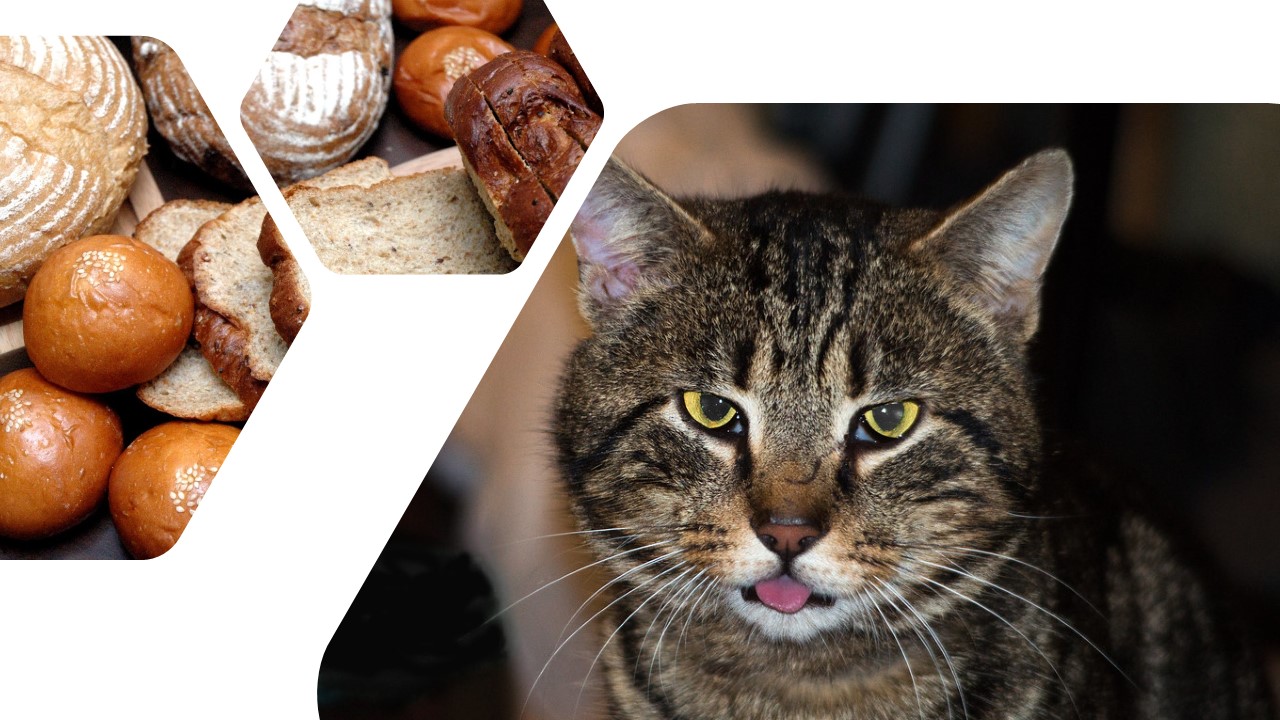Physical Address
304 North Cardinal St.
Dorchester Center, MA 02124
Physical Address
304 North Cardinal St.
Dorchester Center, MA 02124


Yes, cats can eat bread. Like with many human foods, cats can normally consume modest amounts of bread in moderation. But cats should only eat it occasionally rather than eating it on a regular basis. Bread has no harmful effects on your cat’s health, but it does not provide many nutrients for your cat. In this detailed guide I’ll provide a clearer answer to why cats can eat bread and why they shouldn’t.
While your cats can eat bread, it isn’t suggested. Practically speaking, bread is considered as a source of empty calories for cats. Since cats don’t truly need carbohydrates and bread is primarily made of simple carbohydrates, it’s considered to be empty calories for cats with little nutritional benefit.
In Addition, there should be no toppings on the bread feed it to cats because it might be poisonous. Toppings such as butter or peanut butter contain high amounts of fat and calories which are not good for your pet.
Yes, healthy cats can safely eat baked bread. Therefore, this general rule does not apply if your cat has a medical issue. Every cat is different and can vary greatly in how well they tolerate different diets. In general, when it comes to sharing bread with your cat the plainer the bread, the better.
Bread contains yeast and it appears that cats are completely fascinated with the flavor of yeast. A lot of cat meals and treats contain yeast as a flavoring ingredient. However, this is my assumption, there isn’t much scientific evidence.
Plain white, wheat, or pumpernickel bread is suitable for cats to consume. Avoid breads that are both sweet and savory, they contain cat-toxic ingredients in some cases like raisins, chocolate, garlic, onions, and tomatoes. Avoid breads that also have additional herbs or toppings as well.
The majority of bread is safe for cats, however there are a few exceptions. For instance, if your cat eats raw bread dough, the uncooked dough may really expand in the warm, moist environment of their stomach. In the worst instance, this could result in a digestive blockage that could be fatal. It can also induce bloating and stomach distention.
Additionally, the fermentation of the yeast results in the release of alcohol, which might result in alcohol poisoning. Seek quick medical assistance if your cat consumes any bread dough. Cats should not consume garlic, shallots, or onions. When consumed in excess, they might result in organ failure and anemia. Consult your veterinarian if your cat consumes any type of bread that might contain these ingredients, including garlic bread.
It’s usually advisable to completely omit the bread and avoid giving it to your cat in favor of cat-specific treats. But if your cat truly enjoys bread, you can give a tiny amount of plain, freshly baked bread.
For your cat to maintain its best possible level of health, your pet need cat foods made with the proper components that offers the right combination of nutrients, including meat-based protein, amino acids, vitamins, minerals, and energy.
I hope this post has provided detailed guidance to help you to decide if cats can eat bread. Below are other posts you may want to read.
Can Cats Eat Peanut Butter? Complete Guide